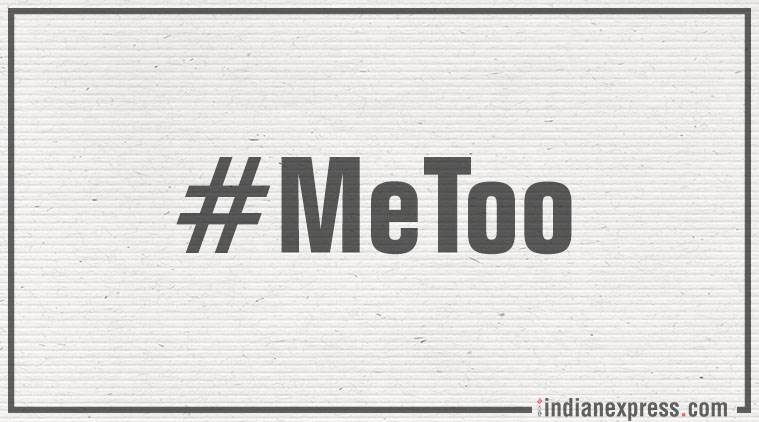The revolution before #MeToo
Let’s remember the time when asserting women’s rights did not devolve into seeking mob justice on social media.

The #MeToo movement is struggling to survive now despite the resignation of Minister M J Akbar. Why? (Representational Image)
As a reporter who had walked into a male bastion during the 1980s, I have a long list of what might qualify as MeToo today. I started working at the age of 19, and have a who’s who “list”, that, I have to confess, did not include a single male journalist — peer or senior. There were men stalking, ministers propositioning and celebrities landing up at your residence and banging on doors. I should have been traumatised. But I wasn’t. I gave it back to them and ensured they never dared to approach me again.
I was not being braver than the other women journalists. Because this was the norm. This is what we were taught as journalists. To handle situations, to counter crises — of the police kidnapping us during the height of the Punjab agitation, for instance — and ensuring that the work place gave us respect and dignity. It did, when you fought for it.
I realised very soon after joining the profession that I was empowered. I had the advantage of my education, upbringing and profession to speak out for the truly disempowered — the Dalit girl being raped by the landlord; the poor women deserted by their husbands with children to feed; the women attacked and almost killed by their own families for daring to associate with a man from another caste.
We needed to work for movements larger than ourselves, for empowerment that could only come from the bottom up. We tied up with women’s movements that did not always deliver. We fought along with that indomitable CPI leader, Geeta Mukherjee, for 33 per cent reservation for women in the legislatures — something that never happened and now no one even writes about. But, we tried. For me, the profession was all about change and it took years to realise that it was compromised and, hence, ineffective.
So when #MeToo burst onto the Indian scene, I welcomed it. Yet another movement by the privileged, of course, but at least taking on workplace sexual harassment. And, through the process of naming and shaming, training the spotlight on predators who used their positions in office to harass colleagues, extract favours and make sexual advances.
However, the #MeToo movement is struggling to survive now despite the resignation of Minister M J Akbar. Why? Because: One, it is not seen as honest. When you create a space for a woman to record her experience, you cannot then cherry-pick according to your dislike or liking of the person accused. All the men named, regardless of their politics then, need to be taken on by the movement. The sorry spectacle of news websites stoking the waters through blatant favouritism cannot be accepted. In this hamam, all are naked, if named by any woman. We cannot protect one and scalp the other.
This is the reason why one had said that safeguards are required to ensure that the space is not misused. That trivial allegations do not find their way into a space for a powerful movement. But that wasn’t to be. The result being, many of the women journalists who managed the resignation of the one, are silent on the charges being levelled against the other. Also, I wonder at a woman who enters a room for an interview when her prospective employer opens the door in his underwear. Seriously?
Two, you cannot give the same quantum of punishment to a man accused of a lewd remark and another accused of sexual assault. In fact, the social media movement framework should not be linked with the law. It can at best be a space enabling a woman to share her experiences, and then, for the law to probe the allegations. Here, the social media mob, for want of another word, has become the judge and jury in a manner that makes me, as a journalist, extremely uncomfortable. I have seen the absence of justice in the field for decades,when mobs kill and lynch the dispossessed and the law disappears. Here, the same scenario is playing out, at the hands of us journalists who should be taking a position that is more legal and constitutional, even as it enables and empowers women.
Three, we are not the US and our ratio of the urban privileged is minuscule. Even so, the movement does raise awareness about workplace exploitation in urban towns, and has brought this reality closer home to those living in Delhi and the metropolises at least. Whether it has challenged patriarchy is the moot question that needs analysis at this stage. For even as I write, the Sabarimala movement is being led by women. But, we need to link the movement with the less privileged. Even if we want to remain urban, there are domestic workers and construction workers, to name just a few groups who are at the receiving end of the stick in cities with no #MeToo to highlight their plight.
Finally, the #MeToo movement seems hinged on publicity for which the victim or the accused are required to be celebrities. Who would record or act on a complaint by a woman about rape in her work place by her not-so-famous employer? Or a domestic worker, perhaps, who faces this reality in most Delhi homes? For the movement to gain relevance, and to sustain itself, these connections and linkages are imperative.
I will not say more as this has already crossed the 40-character attention span of most people spearheading the social media movement. Unfortunately, without any safeguards, the patriarchal control by men over this space, too, seems to have been established.
The writer is founder editor of The Citizen.







































No hay comentarios:
Publicar un comentario